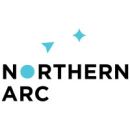Chennai has become the fastest growing startup hub in India. At this rate, the city is expected to break into the top 100 ranking as it becomes a global destination for unicorn-hopefuls and early-stage ventures.
Chennai hosts a diverse range of industries, from IT to healthcare, as well as esteemed educational institutions, like the Indian Institutes of Technology and Anna University, which supply a pool of skilled professionals. Compared to other major cities, Chennai also has a lower cost of living and well-developed infrastructure that promotes high connectivity. It also helps that the government rolled out a five-year plan designed to make Tamil Nadu the “global innovation hub for startups” by creating 100,000 jobs within early-stage enterprises.
Top Startups in Chennai
- Yubi
- Mind & Mom
- AgniKul Cosmos
- Pando
- Aquaconnect
- SuperOps.ai
- Northern Arc
- Pepul
- The ePlane Company
- GreenPod Labs
Whether it’s a new spin on neobanking or aerospace endeavors that are pushing to privatize the space sector, the following startups are contributing to Chennai’s industry boom.
20 Top Startups in Chennai
Garuda Aerospace is a drone-as-a-service startup that develops unmanned aerial vehicles for specialized use cases. These flying machines have been engineered for 38 different applications, from sanitation and agriculture to mapping, delivery and surveillance. The company, valued at $250 million, currently has 500 pilots operating 400 drones in 84 cities. Its latest round of funding, a record $22 million — the largest series A funding in the drone sector — will be used to train and onboard more drone pilots and build-out drone models with enhanced payload capacities, quality sensors and data embedding.
LUMIQ is a cloud-based data and analytics company operating within the financial services sector. Founded in 2013, this “company-to-watch” helps finance and insurance companies make better decisions and improve results by turning raw data into its own strategic asset. Like other fintech outfits, LUMIQ uses artificial intelligence and machine learning in its data models to solve complex business problems; however, the company, valued at $38.8 million, credits its success to its robust team of more than 350 certified architects and engineers native to the financial services domain.
The ePlane Company is an urban air mobility startup that is building an electric air transportation system — including India’s first flying, all-electric taxi for a commute that’s ten times faster than original routes. In addition to a taxi service featuring the compact, five-by-five-meter eVTOL, this company is exploring alternate business models, like manufacturing the two-seater planes in order to sell them to wealthy customers — as it would a luxury car — and break into last-mile logistics routes. According to its website, the ePlane Company ultimately wants to “alleviate congestion in urban spaces by offering accessible, affordable and sustainable flying experiences to people around the world.”
Formerly CredAvenue, this fintech platform facilitates lending between institutional lenders and borrowers — specifically small to medium-sized enterprises — looking for quick-turnaround financing solutions. Valued at 1.5 billion, Yubi delivers transparency to business lending by creating a digital footprint of each transaction. This way, businesses can capture data, set clear terms, negotiate rates and manage operations while banks, given two-way, real-time information, get a better grasp on the status of these companies and deal flow in return.
M2P Fintech is a B2B fintech company that offers infrastructure-as-a-service for payments, lending and banking. Acting as a core layer between banks, companies and other financial institutions, this startup’s customizable API integrations enable its clients to start their own prepaid and credit card programs, authorize cross-border payments, facilitate loan management systems and co-create neobanking platforms. Today, M2P Fintech is valued at $605 million, and spans across two dozen markets in Asia and North Africa.
Vivriti Capital is a fintech non-banking financing company that enables debt financing to mid-market enterprises. Founded in 2017, the startup set out to “level the playing field” for historically underbanked business owners. Its menu of investment banking resources include upfront lending, working capital for daily operations, short-term credit to finance supply chain costs and endorsements. To date, Vivriti Capital has assisted more than 300 mid-market enterprises find access to upwards of 25,000 crore.
SuperOps.ai is an AI-powered professional services automation and remote monitoring and management platform. Its tools are designed to help third-party IT technicians — known as managed service providers — bring project management, asset management and documentation onto a single unified platform. SuperOps.ai consolidates eight separate tools into one, while automating tasks and predicting issues.
Flintobox is an edtech startup that produces subscription-based educational activity boxes for children. With a new theme every month, these packages are tailored to a child’s age and comprehension level, providing its one million subscribers with brain-stimulating programs that support early childhood development. The idea was to get kids away from screens and smart devices for a few hours, providing three to four games, created by Montessori experts at the International Institute of Information Technology Hyderabad, that enhance a child’s motor skills, creative thought process and critical thinking spanning five core subjects: science, technology, engineering, mathematics and art.
Aquaconnect is a data-driven, aquaculture tech platform that provides farm inputs and market connection. One of its services, known as Aquasat, uses geospatial data collected from deep-learning AI models in tandem with satellite remote sensing to inform a farmer if a pond supplies either fish or shrimp with predictions on harvest supply as well as their days of culture. The platform has also connected over 60,000 farmers in the space with stakeholders in the value chain.
Pepul is a privacy-first social media platform that connects friends and family based on their shared interests. What sets this network apart from reigning social media giants is its safety features. Only authentic users are allowed, as the app verifies each account using an Aadhaar verification process. Efforts to create a positive online culture will be in active content moderation — removing hate content and negative comments — and the restriction of anonymous users. By design, the network’s hyperlocal focus encourages users to go offline and meet like-minded people in real life.
GreenPod Labs is an agri-biotech company that makes bioactive sachets designed to reduce spoilage and prolong the shelf-life of fruits and vegetables. The packaging material has a built-in defense mechanism made from natural plant extracts, slowing the ripening rate and minimizing microbial growth, extending freshness by 10 to 12 days. In 2022, the company received approval from the Food Safety and Standards Authority of India’s scientific committee. With its invention, the company wants to take on food waste, which claims one-third of all food produced in India, and potentially boost agricultural exports.
Kaleidofin is a fintech platform that provides end-to-end financial solutions for traditionally excluded individuals and households. So, through Kaleidofin, low-income, under-the-table workers and women can garner access to savings, investment, insurance and credit. Its data-driven models, built with machine-learning algorithms that calculate demographics, credit, financial and behavioral patterns, can estimate the financial health of its customers to provide holistic financial assistance.
InCore is a fabless processor design company that offers software tools known as core-hub generators. These generators output tailor-made hardware designs using an open-source instruction set, known as RISC-V, for seamless integration for a wide variety of applications, from industrial automation to consumer electronics. From there, users then develop the customized processor cores from InCore’s blueprint. InCore raised $3 million in 2023, which will be used to build out its IP portfolio and pursue the system-on-a-chip space.
AgniKul Cosmos is an aerospace tech startup that develops and launches small-lift launch vehicles for micro and nano satellites. Founded in 2017, the company runs the only private launchpad and mission control center in the country — all others operate under the Indian space agency, ISRO. Following a $40 million fundraising round, AgniKul plans to launch a 3D-printed, sub-orbital rocket before the end of 2023, marking the company’s maiden voyage and the early stages of India’s privatization of the space sector.
Netmeds is a healthcare e-commerce startup that operates as an online marketplace for prescription and over-the-counter medicine. Self-described as “India's largest medical store,” the licensed e-pharmacy serves over nine million customers with doorstep delivery service across the country in as little as one day. While government regulations may soon interfere with online pharmacy apps, Netmeds announced that it would launch another 1,000 retail stores in a year, doubling its total of in-person pharmacies.
Mind & Mom is an AI-enhanced women’s health platform. The end-to-end fertility app, launched in 2021, supports women in their early reproductive years and throughout menopause with services like ovulation calculators and custom IVF treatment guides as well as the clinics, connecting them to medical personnel in demand and digital marketing services. Mind & Mom recently won a 10 lakh grant, and has about 200,000 users.
Disprz is a people-first skilling platform that unlocks potential in a company’s workforce via earning and skill development. An estimated 2.8 million users turn to the “knowledge-tech” platform for guidance on job readiness, closing skill gaps, upskilling, career mobility and frontline worker training. The $30 million Disprz raised in 2023 will be used for global expansion, product development and generative AR tech.
Pando is an open-market freight management platform that has digitized logistics operations. Leveraging advanced connectivity and data-sharing technologies, Pando consolidates supply-chain data from multiple silos onto one AI-powered, software-as-a-service dashboard. It also comes pre-integrated, meaning that companies can personalize interfaces custom built to their business without needing to code. According to the company's website, users experience a 12 percent reduction in cost within the first 65 days of implementing Pando into their end-to-end fulfillment operations, with a 21 percent improvement in service-level agreements and 24 percent decrease in carbon footprint around the 100-day mark.
Northern Arc is a non-banking finance company that democratizes access to debt finance for underserved households and businesses. The diversified debt platform takes a “skin-in-the-game” approach to their main three services — deposit-free financing, syndication and structuring as well as fund management — when connecting investees to its large network of potential investors. Northern Arc, which has been operating in the financial inclusion space for over a decade, credits its success to a quantitative analysis method built from a data lake of over 22 million data points on repayment behavior. To date, Northern Arc has moved over $17 billion in finances, according to the company’s website.
Jinglebid is a decentralized e-commerce marketplace run on a reverse auction principle, where sellers bid to local buyers. In other words, Jinglebid flipped the script by creating a demand-driven platform, where buyers name their price for a desired item while sellers compete. In this upside-down scheme, the lowest offer wins. And, since users are geographically matched within five kilometers of one another, delivery is no problem. In its first year, Jinglebid onboarded 1,400 verified sellers and 50,000 customers based in Tamil Nadu.






















